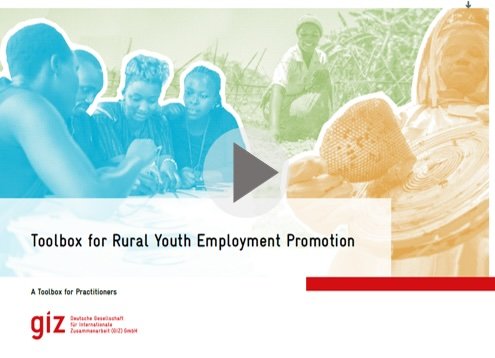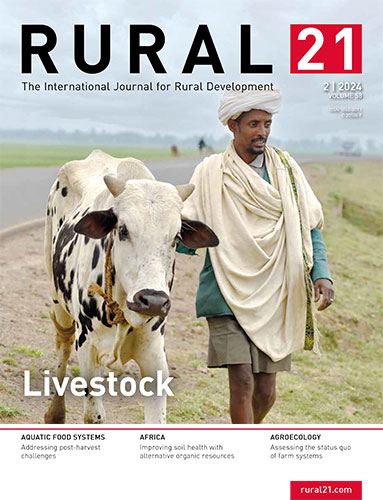 Read this article in French
Read this article in French- Share this article
- Subscribe to our newsletter
GIZ and Helvetas offer new “Toolbox for Rural Youth Employment”
Labour markets in rural regions of developing and emerging countries have a number of characteristics that structurally distinguish them from urban labour markets. Unemployment, lack of income-generating activities and informality pose great challenges in rural areas and youth are particularly affected by un- and underemployment. Nevertheless, rural areas and the agri-food sector have the potential to offer them productive employment opportunities for youth.
On a technical level for project planning and implementation, GIZ and other organisations have developed a plethora of guidebooks, manuals and other tools in recent years to address many of the shortcomings of rural labour markets and to promote the various elements of rural youth employment.
In this context, the Global Project “Rural Employment with a Focus on Youth” together with the Swiss organisation Helvetas has developed a toolbox which presents a compilation of existing and proven tools for Rural Youth Employment Promotion. It is structured based on the integrated approach to employment promotion – the 360° AgriJobs Approach – developed by the German development cooperation, and adapted to rural areas and youth.
The adapted integrated approach allows to analyse and address constraints in a holistic way while avoiding stand-alone interventions. It addresses the three main pillars of demand for labour (job creation), supply of labour (improving employability) and matching (of demand and supply) with tools to create favourable framework conditions and strengthening systemic foundations by reinforcing existing ecosystems and organisations.
What offers the toolbox ?
The toolbox highlights the importance of interlocking various tools to address systemic shortcomings in a comprehensive way. An interactive overview of the adapted integrated approach provides the user with easily accessible information about the different topics and helps to choose the right tool(s) for the specific context and target group. The document offers several pathways to get to know the relevant topics and tools within the adapted integrated approach.
The more than 70 tools are presented with a tool description including an analysis of the relevance for rural areas, tips and lessons learnt for their implementation and several further resources concerning the tool. The toolbox also shows important interlinkages and presents specific country cases to show how the tools are interlocked and implemented in practice.
The toolbox targets practitioners and decision-makers in German development cooperation as well as other implementing organisations working in the field of employment promotion and rural development – no matter if the focus is on small and medium size enterprise (SME) development or value chain promotion, skills development and Agricultural Technical Vocational Education and Training (ATVET) or on rural governance and local networks and ecosystems.
Contact: Frank Bertelmann, Deutsche Gesellschaft für Internationale Zusammenarbeit (GIZ) GmbH, Bonn/Eschborn, Germany, frank.bertelmann@giz.de
Caroline Jehmlich, Deutsche Gesellschaft für Internationale Zusammenarbeit (GIZ) GmbH, Bonn/Eschborn, Germany, Sophie.Mechsnder@giz.de
Link to publication: Integrating Rural Youth Employment Promotion Into Your Project ⏤ It's Easy With This Toolbox (snrd-africa.net)





Add a comment
Be the First to Comment